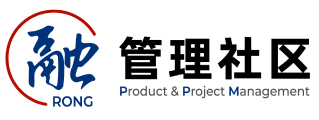5 Mistakes Every Project Manager Should Avoid项目经理应该避开的5个坑
 465 2024-01-25
465 2024-01-25
我们非常重视原创文章,为尊重知识产权并避免潜在的版权问题,我们在此提供文章的摘要供您初步了解。如果您想要查阅更为详尽的内容,访问作者的公众号页面获取完整文章。
Mistake #1: Failing to understand the purpose of the project
The first mistake is not fully grasping the project's purpose, leading to misaligned targets and priorities. In the initial project experience described, the team aimed to achieve all goals without considering resource constraints, resulting in a critical quality issue. The lesson learned is to ask "why" questions to comprehend the project's essence and confirm its alignment with organizational strategy. Ranking priorities from the outset is also crucial.
Mistake #2: Accepting unrealistic planning
The second mistake is accepting a plan without thorough review, which can cause rework and delays. It's vital to define the project scope, methodologies, and deliverables. Plans from external providers should not be trusted blindly, as they may underestimate the time and resources needed. To avoid this, questioning the plan and consulting experts and team members is advised.
Mistake #3: Not truly connecting with the team
Another mistake is failing to connect with team members, particularly in hybrid and remote settings. Informal chats and structured unstructured time can help understand team members' constraints and motivations. Utilizing video calls during virtual meetings can also strengthen relationships.
Mistake #4: Equating constant check-ins with a lack of trust
Frequent check-ins are not a sign of distrust but a necessity due to the remote nature of stakeholders and the scarcity of resources. Regular project status meetings and clear communication rules are essential, especially with distributed teams. Leaders should encourage participation and trust their instincts to address issues.
Mistake #5: Neglecting your professional development
The final mistake is overlooking one's professional development. Engaging in project management training and other learning opportunities boosts confidence and competence. Professional development can take many forms, including webinars, podcasts, and online courses. It's important to make time for learning, even if it means scheduling "appointments with yourself" to disconnect and reflect.
想要了解更多内容?


白皮书上线








